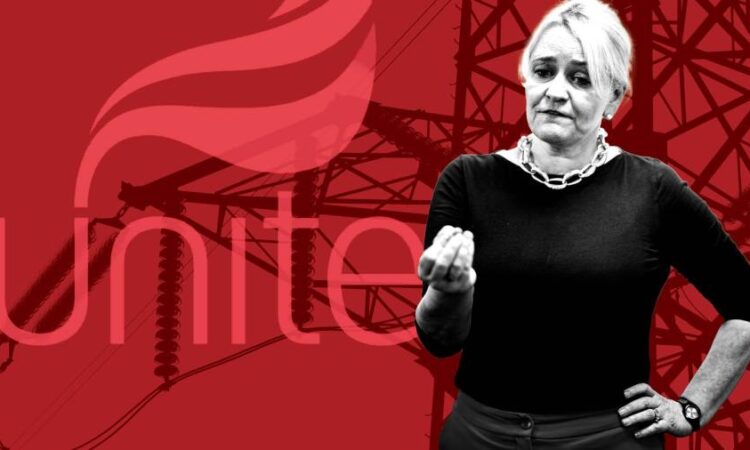
Unite, Labour’s biggest financial backer, will urge Sir Keir Starmer this week to reconsider the case for nationalising the entire UK energy sector after years of what the trade union calls “profiteering” and “greedflation” by companies.
The Labour leader has ditched plans he inherited from his predecessor Jeremy Corbyn to nationalise the energy, mail and water industries, although he would keep the railways in state hands. He has also called for the creation of a state-backed green energy company to accelerate the push to a low-carbon economy.
The main opposition party has a big lead in the opinion polls ahead of a general election expected next year and Sharon Graham, general secretary of Unite, will step up pressure on Starmer to put nationalisation of energy companies back on the table amid public anger about high bills and record profits.
She will present him with a report by the union’s research team setting out in detail how it believes taxpayers would benefit from the state purchase of the energy distribution networks, the big six household suppliers and the North Sea oil and gas industry.
Graham conceded it would cost between £90bn and £196bn to buy the businesses — increasing Britain’s national debt — but insisted the UK could afford it given it was the fifth richest economy in the world with GDP of £2tn.
“This is not some radical thing . . . the dial has moved and we’ve all seen that the privatisation of much of our infrastructure, like energy, has failed,” she said. “We are paying ridiculous amounts for our energy that many other countries aren’t because they own their own energy production. Renationalisation is not a dirty word.”
Graham also accused businesses of pursuing a policy of “greedflation”, where companies drive up inflation by increasing prices beyond the extent that their own price pressures would demand.
“Greedflation is what is spiking inflation,” she said, arguing that the impact of unions pushing for higher wages was “minuscule in comparison to profiteering”.
Graham said the report showed the UK’s energy sector was “broken . . . leaving this critical infrastructure in the hands of profiteers”. Unite estimates that profits made by the sector in 2022 totalled £45bn, more than three times the previous year’s levels, and that in a nationalised system the windfall could have been used to reduce energy bills by £1,800 per household.
The analysis pointed out that while the government had spent roughly £100bn since the start of the energy crisis on subsidising energy bills, households have still seen them at least double since the start of 2021.
Households in some other European countries have not seen energy bills rise as steeply as in the UK. In France, for example, state-controlled EDF lost €17.9bn in 2022 after it was required to cap prices for consumers and businesses, while wrestling with problems with its fleet of nuclear power plants.
The union’s analysis, which did not include the cost of any new nuclear power plants given the uncertainties around the build programme, calculated it would cost £196bn to nationalise the UK energy sector at market prices.
But it also noted that the book value of the companies stood at £90bn and suggested the cost of renationalisation could be closer to that figure given valuations in the sector were “highly dependent on regulatory conditions and government guarantees”.
“If we owned our own energy, £90bn is what it would cost but from that point it sits on the books as an asset . . . it generates return,” said Graham. “And then we could regulate what households and businesses pay for their energy.”
Sir Dieter Helm, a professor of economic policy at Oxford, said: “The issue really isn’t the idea they can’t afford it. They can. It’s what they want to do with it?”
He added: “The Unite paper is going for the wrong model. But the central issue for all models is that the electricity networks need massive investments, and some of the distribution network companies are not in a good state to do what is needed.”
Analysis by the Centre for Policy Studies, a Conservative-aligned think-tank, in 2018 noted that nationalisation often required higher public current expenditure to enable significant policy changes: “If the profits are going to repay the borrowing costs, they cannot be used to drive down prices for consumers.”






